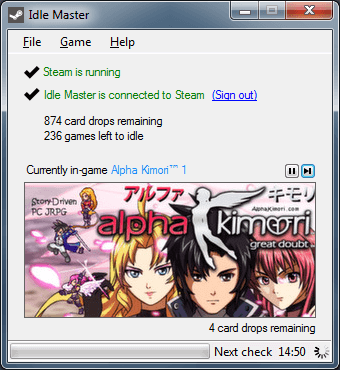



A guide on r/argaming, a subreddit for Argentinian players, explains how to farm cards from cheap indie games and turn a profit. It's not hard to find evidence of this in action. (It's possible for developers to tinker with this on their own.) The game is currently sold for $1.99 USD, and the pricing in Argentina (and elsewhere worldwide) is set to whatever Steam suggests for the region. In addition to buying and selling them, players can combine and craft badges to earn bonuses, like coupons to save money, chat emoticons, or artwork to spruce up your profile.īy comparison, $7 ARS is $0.07 USD. Steam trading cards are little virtual collectibles dropped by games purchased through Steam. In essence, you could make money-or basically break even-by purchasing Over 9000! Zombies. Over 9000 Zombies! costs only $7 ARS (Argentinian Pesos), but players could flip the Steam trading cards acquired by playing the game for $10 ARS.There was also a stranger theory, posited by someone responding to Lemcke on Twitter. It's still possible to region hop, but it's officially a pain in the ass. That became even more true this past June now, you can only change regions every three months. But in 2020, Steam required users to pay with "a local payment method" and made it frustrating to switch regions willy nilly. For a time, it was possible to purchase a VPN and mask your location, buying games wherever. You get the idea, and it's not hard to imagine why people would jump through hoops to take advantage of this.īut Valve has been making region hopping more difficult over the years. An older game like 2016's DOOM costs only $5 on Steam right now- but costs $1 in Argentina. Resident Evil Village costs $60 in the US- but costs $36 in Argentina. Mass Effect Legendary Edition costs $60 in the US- but costs $37 in Argentina. One of the cheapest places to buy video games in the world, it turns out, is inside Argentina. Game prices are different around the world, reflecting different economic conditions. People are "region hopping," where players change the identity of the country they live in, to take advantage of region-specific pricing and build out their library cheaply.


 0 kommentar(er)
0 kommentar(er)
